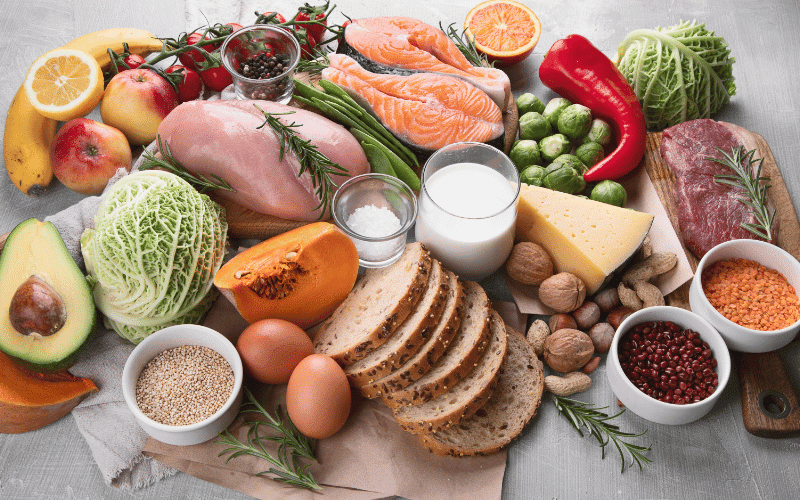2: Maintain a Balanced Diet

Diet plays a crucial role in determining your testosterone levels. Consuming a balanced diet that includes healthy fats, lean proteins, and complex carbohydrates is essential for maintaining optimal hormone production.
First, healthy fats are necessary for testosterone production, as they provide the building blocks for the hormone. Foods rich in healthy fats include avocados, nuts, seeds, olive oil, and fatty fish such as salmon and mackerel. In particular, monounsaturated and polyunsaturated fats have been linked to higher testosterone levels.
Next, lean proteins are vital for muscle growth and repair, which can indirectly influence testosterone levels. Some protein-rich foods include chicken, turkey, lean beef, and legumes like lentils and chickpeas. It’s essential to consume a variety of protein sources to ensure you get all the necessary amino acids.
Finally, complex carbohydrates provide the energy needed to fuel your workouts and daily activities. Whole grains, fruits, and vegetables are excellent sources of complex carbs that can support healthy testosterone levels. These foods also contain essential vitamins, minerals, and antioxidants that can further benefit your overall health and hormone production.
In addition to the macronutrients mentioned above, certain micronutrients play a critical role in testosterone production. For example, vitamin D and zinc have both been linked to increased testosterone levels. To ensure you’re getting enough of these nutrients, consider consuming foods such as fortified dairy products, oysters, and pumpkin seeds, or consider taking a high-quality supplement.
It’s also crucial to maintain a healthy body weight, as being overweight or obese can negatively impact your testosterone levels. Studies have shown that losing weight through a combination of diet and exercise can lead to increased testosterone levels. Consider working with a registered dietitian or nutritionist to develop a personalized meal plan that supports your health and fitness goals. (2)